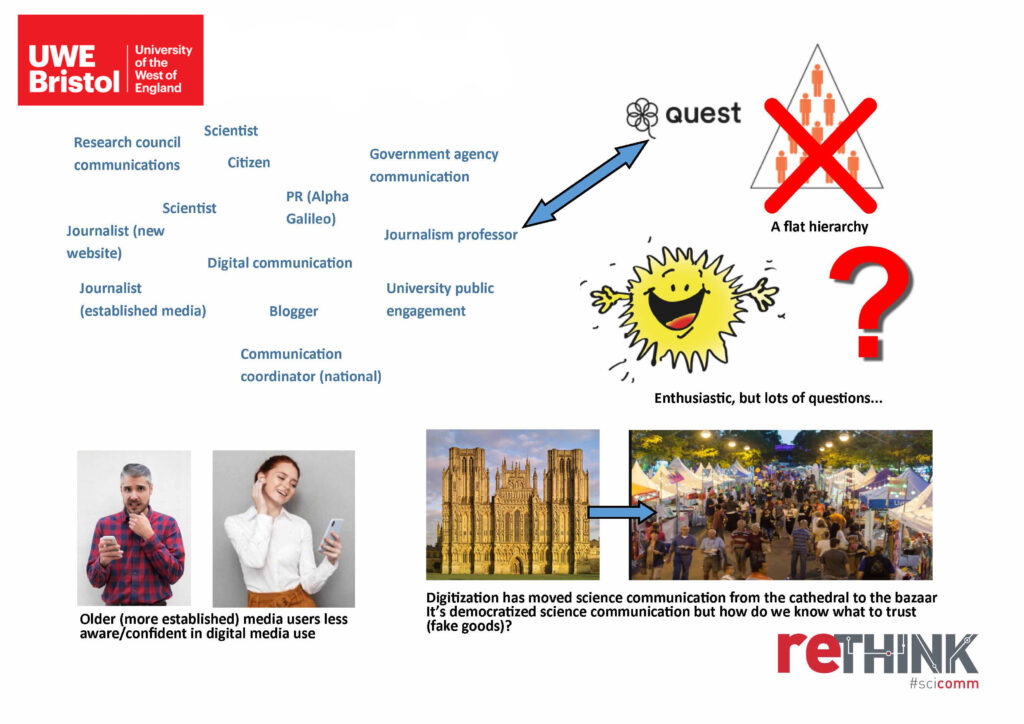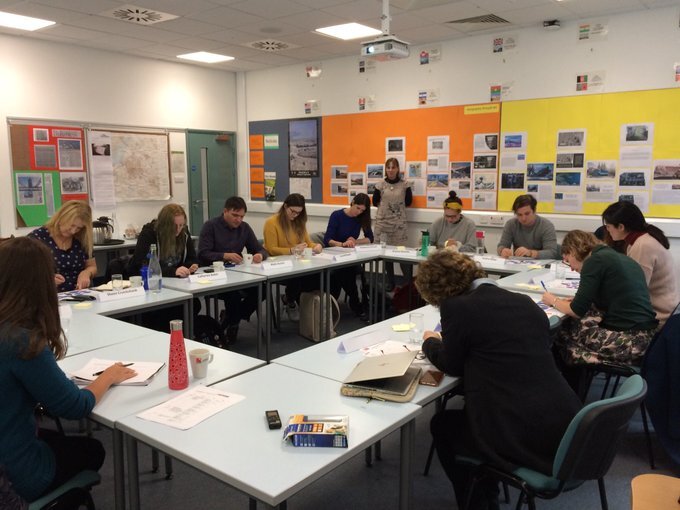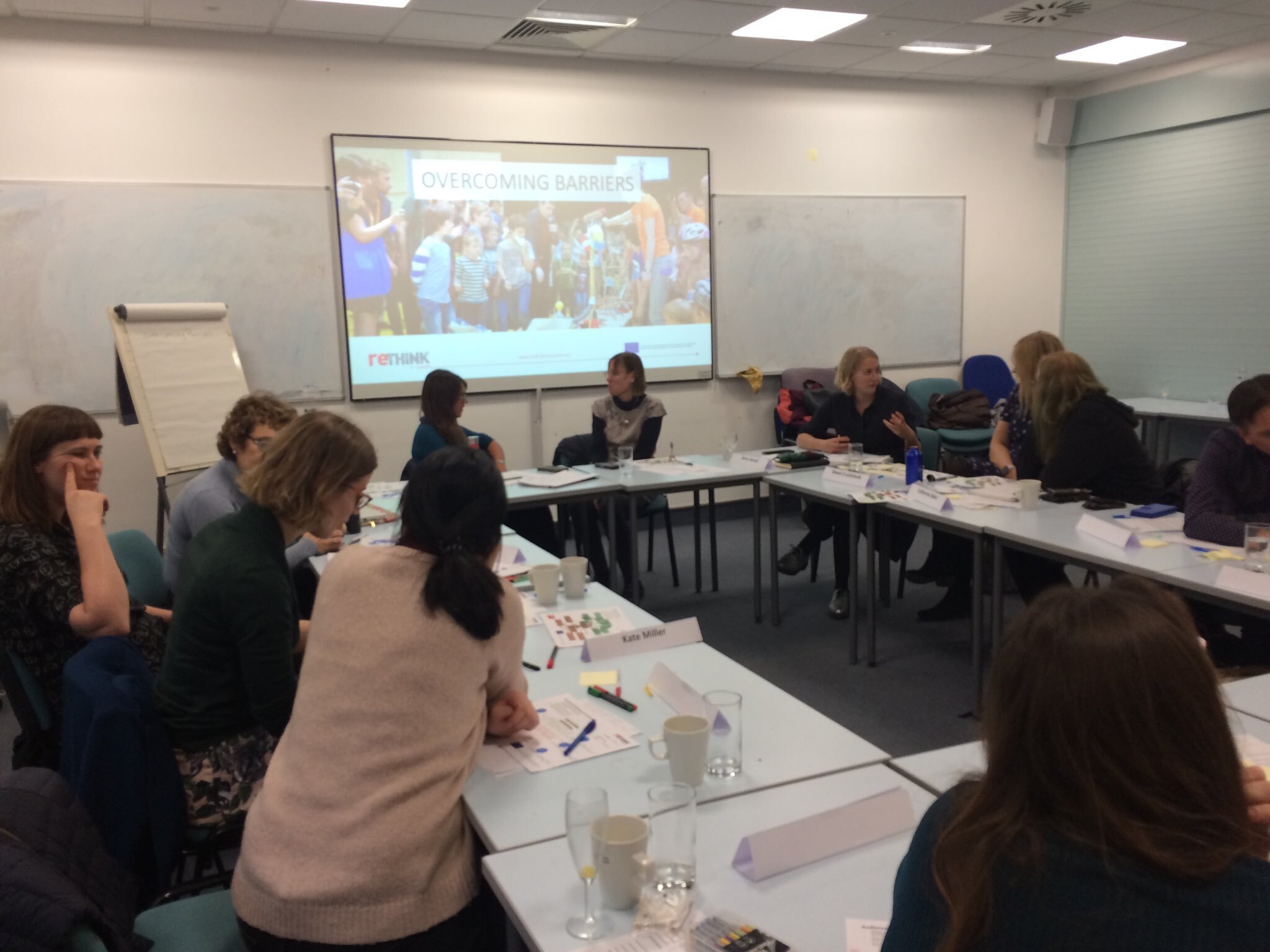
WORKSHOP #1 On paper, it looked like it might be mission impossible. To bring a science blogger, a scientist, a water resources advisor, a science journalism academic, and a host of other people together in one room to talk about the challenges of science communication. Would they turn up? Would those with such diverse perspectives be able to have meaningful conversations? They did turn up. And while there were no car chases or shoot-outs and no Tom Cruise, energy levels were high as we met at the University of the West of England’s Frenchay campus and there was a real sense of shared purpose.
At this first meeting of the UK Rethinkerspace, members talked about how science has been transformed by the proliferation of online forms of communication. It was described as a shift from the cathedral to the bazaar – from one to many communication to many to many. While this has been a source for good – democratizing knowledge and expertise, it’s also led to challenges for those communicating science. For example, how do you catch and maintain the attention of your audience when there’s so much content online? How do you convey the complexity of science on platforms that are entertainment-focused such as Tik-Tok?
It wasn’t all about problems. Solutions were suggested too such as communicators becoming an authority in a small area of knowledge to help develop their profile as well as communicators seeking help in reaching audiences by forming collaborations with social media influencers. This first meeting was only the start of the discussion. The mission is far from over. But members of the UK Rethinkerspace have certainly chosen to accept it.


WORKSHOP #2 (held in two sessions). Members of the UK Rethinkerspace found the research into citizens’ sensemaking practices interesting. They discussed how it indicates that science communicators need to be more aware of people’s contexts given the important influence that their context how they find and interpret information. They suggested that events, such as science festivals, need to be planned to allow time to listen to people’s experiences so we can better understand their experience and context.
The Rethinkerspace members also enjoyed discussing quality in science communication. They had lots of ideas about quality criteria could be implemented in practice such as the funding of fact checking services and education in schools to teach pupils how to critically evaluate scientific information.
WORKSHOP #3 (May 19th, 2021). Rethinkerspace members developed some interesting ideas for experimental work they could undertake that would integrate openness and reflexivity into their working practices. It would be interesting to potentially follow up on this in the future to see whether Rethinkerspace members implemented any ideas for experiments and if they did, any reflections they have on this experimental work.
In the plenary discussion about openness and reflexivity, one Rethinkerspace member commented on how personality type may influence the extent to which an individual is open and reflexive. Another commented on how they tried to integrate openness and reflexivity into their work practices, particularly when reaching out to specific audiences. Rethinkerspace member Lucy McGowan reflected on her experiences in some experimental work led by VU Amsterdam in which she attempted to integrate openness and reflexivity into her working practices. She described how she had conducted a brief survey with listeners to the local radio show she was part of to understand more about their perceptions of the coronavirus coverage on the radio station.
WORKSHOP #4 Rethinkerspace members reflected on what they have learned along the way and brainstormed on what their individual and collective outputs can be beyond the project.
When considering quality, participants commented that the context of the communication activities was important. Participants observed that there are different types of digital content and these different contexts (such as different social media platforms) shape what is good quality. There were questions around how quality criteria would need to adapt as the nature of online spaces for communication evolves – and specifically, how can we be prepared for these new contexts? It implies that quality criteria need to be fluid and evolve over time.
When looking at the research into underserved audiences in science communication, participants commented on the breadth of audiences considered underserved by science communicators in our research. They also said that the research within the project had raised their awareness of creative ways to involve people in digital spaces, which had informed their practice.
When presented with the research and insights into citizens’ sensemaking practices during the coronavirus pandemic, participants commented on key insights from their perspective – one being the way in which people use their own personal networks to inform their perceptions and decisions, particularly at times of crisis and change.
WORKSHOP #5: Sustainability of Rethinkerspaces
The final event in this series of Rethinkerspace workshops brought together all participants from the seven countries in a unique meeting focusing on experience-sharing, community building and sustainability.
Participants were involved in a series on activities with an emphasis on “speed-travels” to the 7 Rethinskerspace hubs, in which hosts presented the outcomes of their workshops on the main themes of the project: Sensemaking, quality of online science communication, openness and reflexivity and reaching underserved audiences. The hosts also invited the “visitors” from other countries to offer their perspective on the issues addressed.
These were the issues that were discussed extensively.
- Scientists involved in research are failing to understand and/or value science communication.
- Mainstream journalists are lacking the necessary scientific knowledge.
- Audiences are wide and diverse, with those involved in science communication finding difficult to locate their particular audiences and knowing what their audiences are seeking in terms of scientific information and knowledge.
- Science communication must communicate something bigger than information and knowledge: values. And this is probably its greater differentiator from pure science and knowledge transfer.
- The role of emotions in how audiences interact with science is too important to be ignored in strict positivistic approaches.
